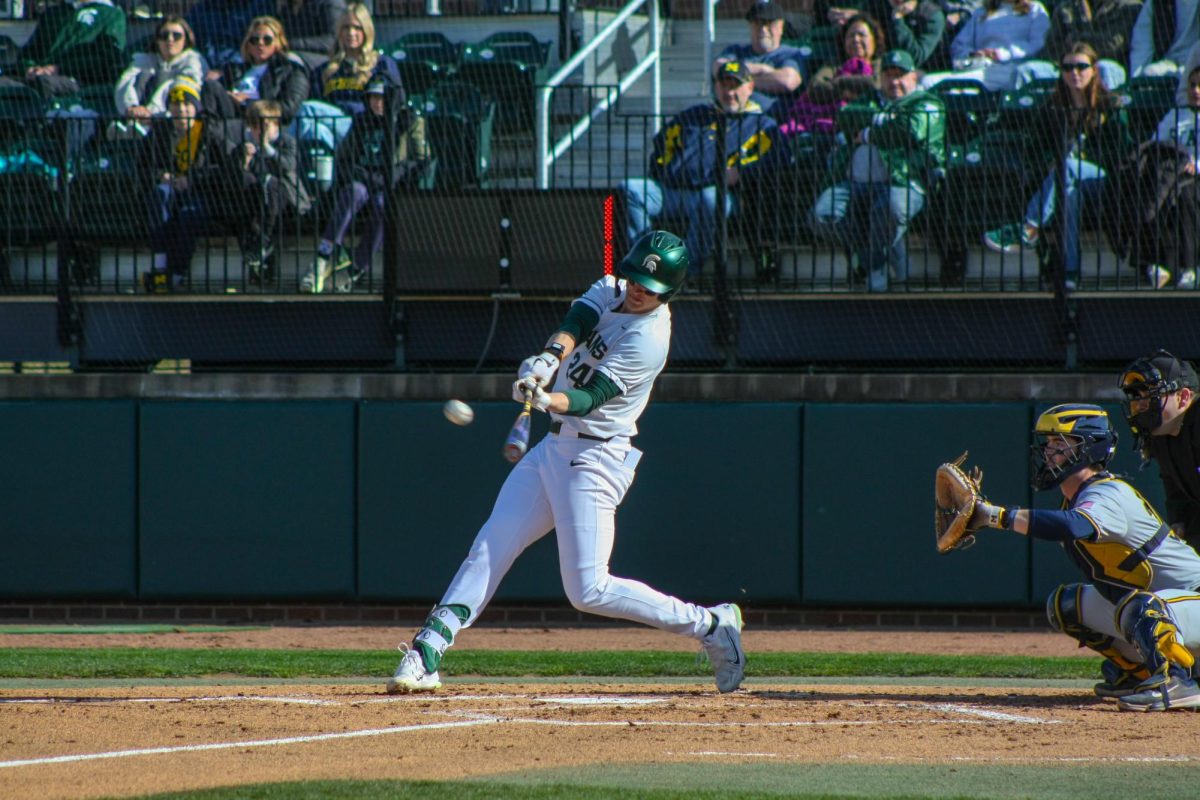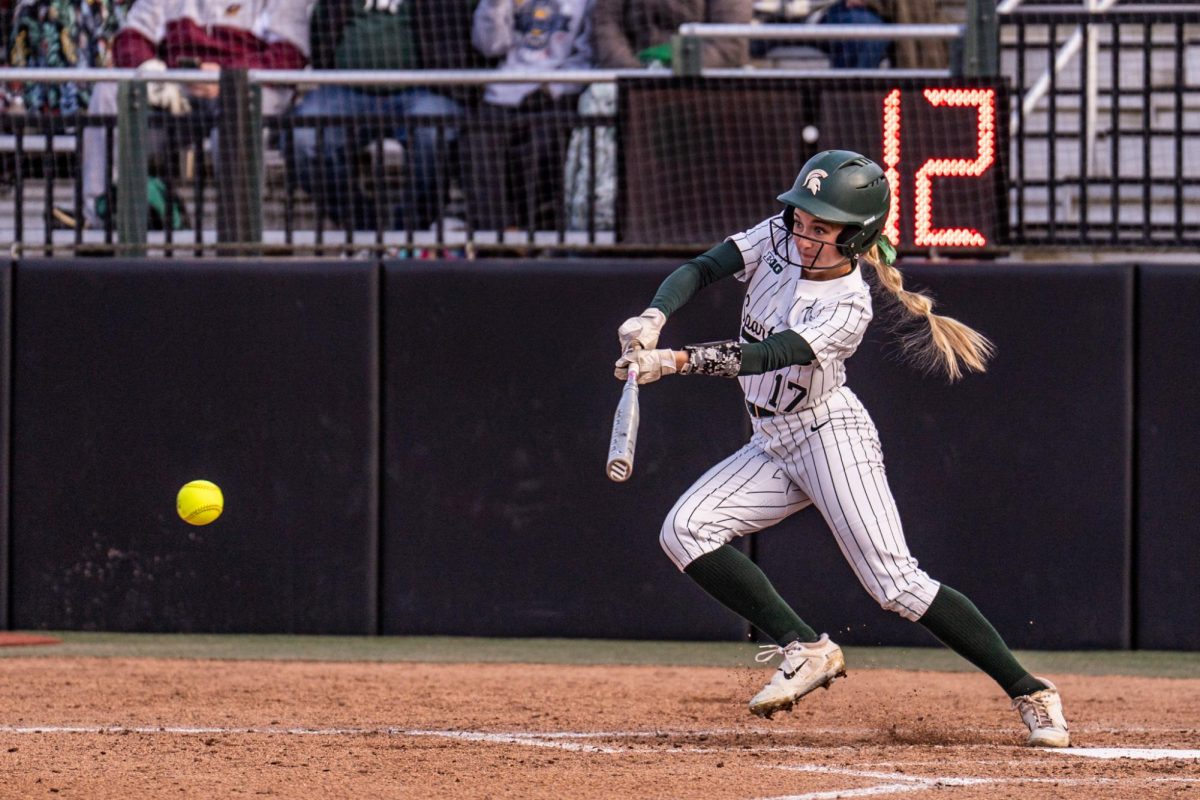It’d be appropriate to call them ice queens. A fitting title considering their No. 8 preseason ranking, a sweet spot to get to nationals.
But queens don’t have to pay for their own pads, and they would never touch hand-me-down equipment.
The Michigan State D1 women’s ice hockey team is a club sport, and is expected to fund equipment, ice time and training all on their own.
“There’s a lot of stuff that goes on off the ice that maybe other players don’t see, the fans don’t see,” senior defenseman and captain Hannah Lensing said.
On a brisk fall afternoon, perpendicular to a field hockey game and a soccer match, the Michigan State Women’s Ice Hockey team battled rival Grand Valley in Munn Arena.
As the clock ticked towards gametime and the rink filled with players, the stands were mostly empty. Except for family members and dedicated roommates, Munn Arena was especially cold with a lack of warm bodies.
“When people start cheering for you and there’s a huge crowd you wanna perform better, you play a lot better,” senior forward and captain Sydney Glanz said.
The Spartans’ defense faltered in the third quarter and the game ended with a 2-3 loss. As the small crowd filtered out of the arena, the women headed back to the locker room, and back to work.
Along with handling recruiting, contracts, registrations for games and organizing practice times, team leaders have had to deal with a major shift in the team dynamic before this year, their senior year.
The previous women’s hockey coach had lead the team for ten years, and his enthusiasm dwindled towards the end. The captains were met with a decision that a D1 NCAA college athlete would typically never have to face.
Lensing had to fire her own coach.
Athletes were getting away with skipping practice and discipline was lacking. It felt like a true club sport, something that Glanz and Lensing couldn’t accept.
“There was a lot of damage done…. It was a scary time,” Lensing said. “He’d been trying to quit for a few years.”
The ex-coach loved the program and the team, Lensing and Glanz said, but his coaching methods were turning his players off. Despite the large amount of money he funneled into the team, the girls had to make the decision. The coach, his family and MSU alumni weren’t happy.
“That’s one of the toughest things…Being 21 and having to fire a grown man from his job,” Glanz said, looking over to her teammate.
Lensing and the other captains suddenly had to take on recruiting, funding and practice logistics. The things that don’t come pre-packaged for a club sport.
Lensing wanted to send a message to her team that if they don’t like a coach, they have an influence on whether the coach stays or goes.
Two weeks after the firing, current head coach Rob Blackburn came into the picture. Blackburn previously coached at the University of Michigan, but he’s been happy wearing green and white. His team is happy too.
“I feel like a new program. We’re basically a new team,” Glanz said.
It’s a mixed team with senior players like Glanz and Lensing, and younger players who are quickly having to learn new formations on the ice.
“When you’ve been playing for 15 years and your coach is still teaching you new things, it’s like a very good sign that we definitely picked the right guy for the job,” Glanz said.
Glanz, Lensing and other veteran players have had to work harder than most teams to create a name for themselves.
“We have a bit of a complex because we’re a club sport and we want to kind of be taken a little seriously at certain times,” Glanz said.
The subject of women’s athletics, especially club, having low attendance and overall interest isn’t new. And these girls know that.
“We’re very realistic about the whole situation,” Glanz said.
They’re aware of everyone’s perception of the women’s ice hockey team, but still play with a little bit of a chip on their shoulder.
“It’s tough,” Lensing said. “Because you get to this wall, like, what more can we do?”
Glanz and Lensing have worked to build a program that will last longer than their senior year. A new coach, new crop of players and a stronger social media presence will help, but one thing might create a new standard for their team’s reputation.
The women’s ice hockey team is looking to stay in the country’s top eight, so they can make nationals.
ACHA rankings have the spartans at No. 9 in the country as of October 25th, 2015. The team’s record is 4-4 so far this season, and according to Blackburn, the women will have to win from here on out if they want to make a good position in the playoffs.
Still early in their season, the women have hope.
“Our team hasn’t peaked yet,” Lensing said. “I can see our team getting better each time.”









